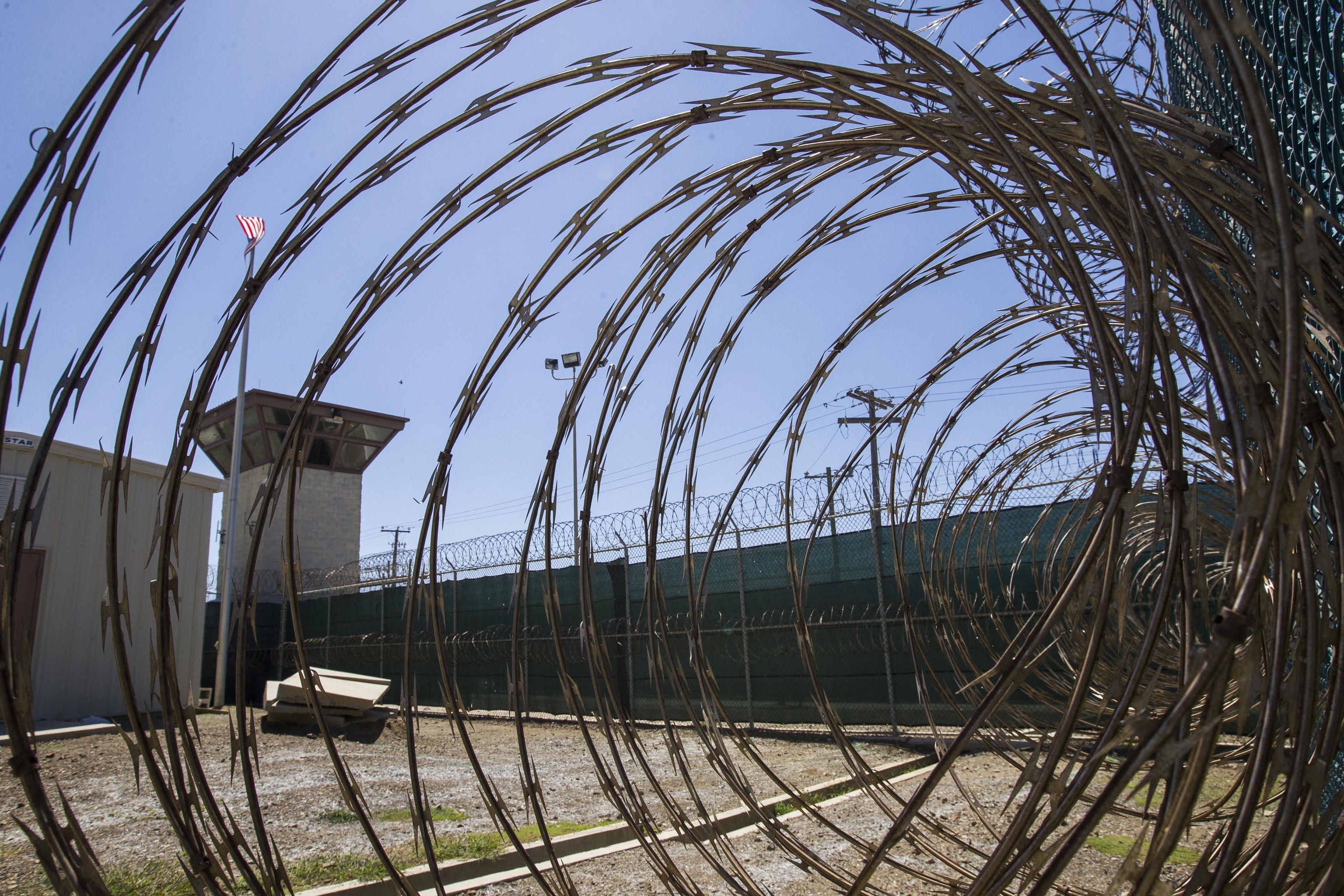On January 22, 2016, nine years ago, the newly elected President Barack Obama ordered the closure of the Guantánamo military prison and the cessation of violent interrogations of terrorism suspects, in an attempt to restore the image of the United States abroad. It was one of his first executive orders, full of symbolism. "The message we are sending to the world is that the United States intends to continue the ongoing fight against violence and terrorism, but we will do it effectively and in a way that is consistent with our values and ideals," he stated. Obama spent eight years in the White House, and then came Donald Trump and Joe Biden, and the base remains open with prisoners awaiting trial for years.
This Wednesday, Donald Trump has brought up the thorny issue of Guantánamo again, but in a completely different context and with a message that has nothing to do with the rest of the world. At the White House, before signing the Laken Riley Act, the president announced that he will sign another order for the Departments of Defense and Homeland Security to build the necessary facilities to house up to 30,000 immigrants in the U.S.-controlled territory of Cuba. Something that was already done in the 1980s and 1990s, and has been maintained on a small scale in recent decades.
Trump stated that there is plenty of space at the base, up to 30,000 beds, to "detain the worst foreign illegal criminals threatening the American people. We don't want them to come back, so we will send them to Guantánamo," he assured, saying that "it's a difficult place to leave."
"I hereby order the Secretary of Defense and the Secretary of Homeland Security to take all appropriate measures to expand the Migrant Operations Center at the Guantanamo Bay Naval Base to its maximum capacity to provide additional detention space for high-priority foreign criminals illegally present in the United States and to address the immigration control needs identified by the Department of Defense and the Department of Homeland Security," the signed document states. "This memorandum is issued to stop the border invasion, dismantle criminal cartels, and restore national sovereignty."
The New York Times, citing the Department of Homeland Security, reports that currently only four immigrants are detained there. The Global Detention Project, a research center advocating for detainee rights, notes on its website that the Guantanamo Migrant Operations Center has a capacity of only 130. Trump maintains that with his instructions, "our capacity will double immediately."
"Some of them are so bad that we don't even trust the countries [they want to deport them to] to keep them, because we don't want them to come back," said Trump about the migrants while signing a law passed in response to the murder of a woman by a migrant who was illegally in the United States.
The Guantanamo base has been used in the past as an immigrant detention center. The clearest example occurred in the 1980s and 1990s when thousands of Haitians were diverted there, even though their asylum requests had been approved. The Biden administration has also used the facilities to house a limited number of immigrants as a preliminary phase before they were returned or resettled in third countries. And that's what Trump wants, as he is in negotiations with El Salvador and other nations in the region to serve as a 'hub' and host nationals from third countries who are expelled.
"We are evaluating and discussing the details right now," explained Homeland Security Secretary Kristi Noem in an interview with Fox News on Wednesday. According to current legislation, the government cannot indefinitely detain migrants for immigration offenses if they do not have concrete deportation plans. Venezuelans are a good example. Up to 600,000 of them were benefiting from a temporary protection status extension approved in January by Biden, which Noem revoked today, while Caracas refuses to accept the deported individuals back.
The Trump administration announced on Tuesday that it would use the Buckley Space Force Base in Aurora, Colorado, for the same purpose, temporarily detaining immigrants, but suspended that plan on Wednesday. Cuba is the next option on the list.
